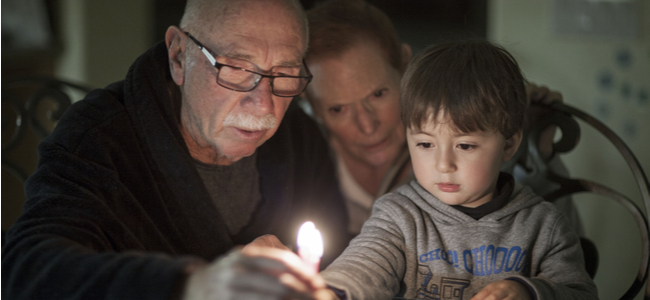DNA Analysis Used To Determine The Genetic Impact On Hiroshima And Nagasaki Survivors

A Japanese-US joint team is aiming to reveal the ramifications of atomic bombs on a genetic level. They’ll study the survivors and their families from the cities of Hiroshima and Nagasaki.
Here’s an overview video of the twin bombings that occurred 75 years ago with an interview from the survivor Howard Kakita:
The Purpose Of The Study
The study is led by the Radiation Effects Research Foundation (RERF), established in 1947. Once known as the Atomic Bomb Casualty Commission, it collected the blood and urine samples of the survivors from Hiroshima and Nagasaki to investigate DNA diseases.
In Japan, atomic bomb survivors are referred to as Hibakushas. Sadly, they face discrimination and stigma in their daily lives to this very day. Statistics say Hiroshima was a thriving city of over 280,000 civilians, and Nagasaki had 263,000 people.
Instantly after the bombing, Hiroshima lost 80,000 people and Nagasaki 75,000. Four months after the explosion, Hiroshima lost 166,000 more inhabitants. In total, Hiroshima estimates 237,000 people died directly and indirectly from the attack. This is due to radiation, cancer, burns, and other illnesses.
Today, there are up to 500,000 second-generation hibakusha in Japan. The shocking fact is they don’t receive any medical aid. This is due to the absence of proof citing that the atomic bomb radiation results in hereditary illnesses.
The objective of the RERF research is to study the genetic effects of radiation like gene mutations, cancer, and birth defects. The foundation will study 900 families, out of which 40 families have both parents who survived the bombing and 460 of whom only a single parent survived. It’ll also test 400 people whose one or both parents were susceptible to 10 milligrams of radiation due to being as close as 1.5 miles to Hiroshima.
The RERF study will also focus on the children of the individuals who were exposed to nuclear reactor meltdowns and occupational risks.
Can Radiation Change Your DNA?
DNA is the building block of life. Science shows that radiation affects the body and its genetic material in many ways. For starters, not all cells behave the same way, but each one is composed of DNA material. Cells from the embryo and blood reproduce sporadically and when you’re exposed to radiation, it can rapidly affect them.
In order to understand the effects of nuclear radiation, you’ll need to understand what ionizing radiation is. It’s a type of radiation that leads to removing electrons from the atom, which ends up ionizing or charging the atom. We’re all surrounded by ionizing radiation from space, the ground, air, food, and water.

Here’s how ionizing radiation affects you:
- Passes across the cell without damaging the genetic material
- Cell structure will be harmed. Self-repair may be able to revert the damage
- It prevents the accurate replication of DNA strands
- Can cause extreme damage that results in cell death
The same radiation can affect the atoms of the genes directly, resulting in critical damages or cancer. Moreover, this is how radiation causes mutations in DNA. This can modify the genes’ chemical structure, break the backbone of strands, or damage the hydrogen bonds connecting base pairs. On the other hand, indirect actions lead to the generation of free radicals, which adds to other illnesses, like cancer, in the long-run.
However, radiation can kill cancerous cells too. This is how the repair of DNA damage with radiation treatment works during cancer therapy.
When it comes to atomic bomb survivors, the same degree of direct and indirect impacts hold true. Detailed studies like the one RERF is conducting are mandatory.
What Can DNA Testing Reveal About My Health
Very useful insights can be uncovered with testing including the link between DNA and life expectancy, a review of how radiation damage to DNA can impact health, and hereditary diseases that you might be predisposed to. Some of the valuable benefits of genetic risk tests include the following:
- Medical DNA testing is equipped to reveal over 2,000 hereditary diseases by looking for genetic strands variations. These include sickle cell anemia, Huntington’s disease, Cystic fibrosis, Marfan syndrome, and muscular dystrophy according to the NIH
- Presymptomatic genetic tests can help you determine the probability of developing hereditary diseases
- Carrier tests study how DNA mutation might impact unborn children
- A predictive genetic test sheds light on hereditary cancers. However, it should be noted that this assessment isn’t 100% accurate
- DNA tests can identify disorders like late-onset Alzheimer’s, Parkinson’s disease, and blood clotting disorders. They may also highlight tissue damage and celiac disease



